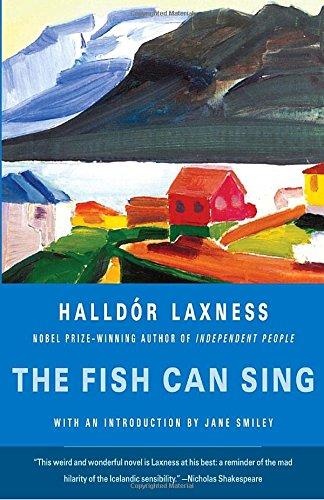The Fish Can Sing, in other words, pays homage to ordinary people who do their work with simple diligence, without boasting. It is a hymn of praise to the common man and the people Laxness cherished more than any others. A little further on in the notebook, he emphasizes this: "Two kinds of Icelanders: the fanatic extroverts, forever banging their drum and showing off, making their mark on the world and ruling the Hype Society—and then the Hidden People ... endowed with almost everything men pride themselves on, but wholly free from self-advertising. These are the essential backbone, the element that ensured the survival of Iceland's human population, the people who perform all the great deeds but never boast of them, whom one never hears about and who will never be discovered by the Hype Society."
In another place in the notebook, he later defines "the Hype Society" as: "The Hype Society—the collective responsibility of microscopic local celebrities to praise each other." The Hype Society, in other words, is what has been called elsewhere the Confederacy of Dunces. The Hidden People—the ordinary men and women—are thus the silent custodians of all the values that truly matter in the world. It is no wonder, then, that Laxness felt it most pressing to thank the laborers of Sundsvall, Sweden, for their congratulatory telegram on the occasion of his Nobel prize-giving—men who stood bent double over their pipes deep in the ground, trying to get the water to flow through, yet who suddenly straightened their backs and climbed out of their drain to shout hurrah for literature. To Laxness, it was of supreme importance to thank the hidden people for their goodwill. This deep respect Laxness showed for ordinary human lives likely explains better than anything else why his works have enjoyed such enduring popularity among Icelanders—and among readers in other nations as well. In his books, one finds a common human core - a pure note that resonates with people everywhere, regardless of their environment. Through his works, Laxness succeeded in bringing the greater world into Icelandic literature, creating a microcosm where the fates of his characters can be understood by readers wherever they may live in the world.


